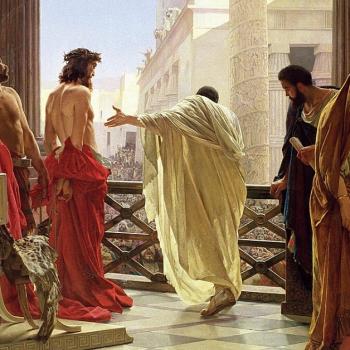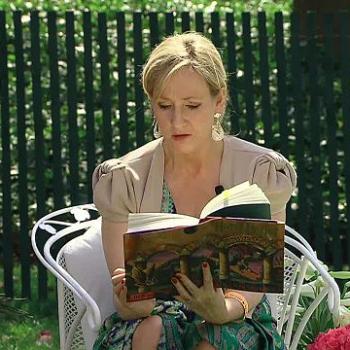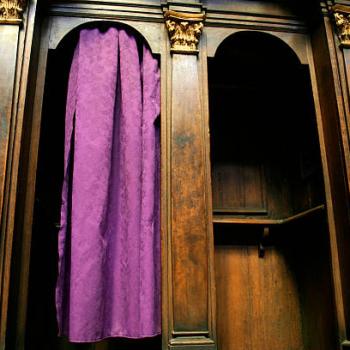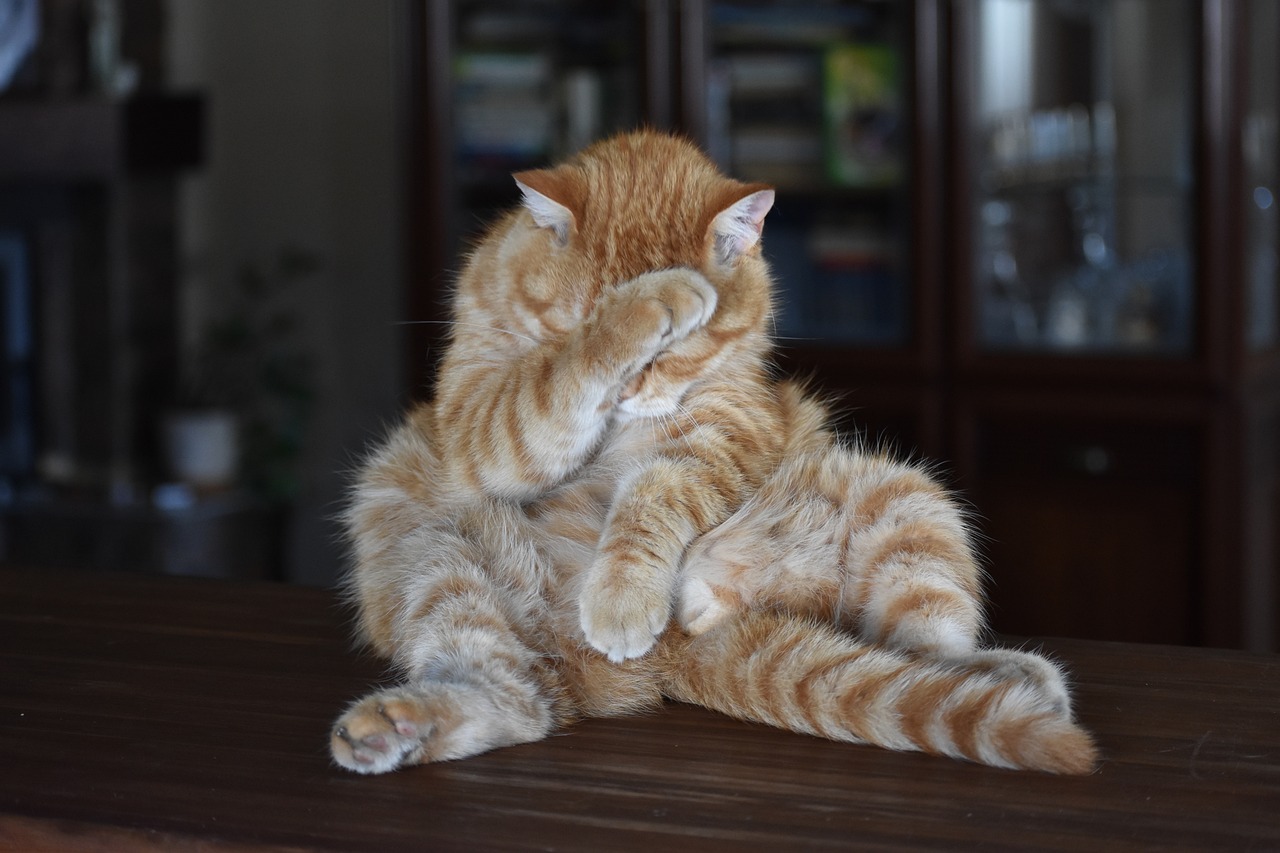It’s that time of year again. Around every corner there’s sure to be someone or something wishing you a very happy unspecified holiday, or holidays. Christians have recently become concerned about the gradual disappearance of the word “Christmas” from our cultural vocabulary. Meanwhile, other Christians (generally those who lean leftward) are writing snarky blog posts about “the Christmas wars” and telling us hyper fundamentalists that we need to chill, because we’re paranoid and this is just about being sensitive to people who think differently from you and anyway Holidays really means holy days so there. (Even though one can’t really have it both ways, I’ve seen people act like both arguments can somehow co-exist. Presumably they’re just reaching for whatever they can think of.)
What I hear constantly is this sentiment that “It’s just a word, people!” and that Jesus doesn’t really care about the specific language we use anyway. But I beg to differ. I believe words do matter. Specifically, I think the word “Christmas” matters.
As an example of the snarky attitude to which I’m referring, let me quote a recent post by Jon Acuff on Stuff Christians Like. I sometimes like his stuff, but it comes out occasionally what sort of crowd he hangs with, as in this case:
When Joseph held the sweet baby Jesus in his arms, he didn’t say, “Happy Christmas to all and to all a good night.”
The wisemen didn’t get down off their awesome camels and say, “Here are some Christmas gifts.”
Even decades later, the disciples didn’t have a Christmas party. Peter never said to Jesus, “I got you a notebook Jesus because I know how much Christians like to journal. Merry Christmas!” And Jesus didn’t respond with, “You shouldn’t have! I got you a pair of Chacos because, good grief, we sure do walk a lot and we love sandals!”
The disciples didn’t have an ugly Christmas sweater contest. They didn’t correct heathens at the local watering hole who were saying, “Happy Holidays.” They didn’t have a candlelight service. They didn’t yule log at all.
We added that. You and me and your grandfather who had an epic beard that would have embarrassed anyone who tried to grow one during “Movember.”
He’s trying to be oh-so-bitingly-witty and relevant, but it strikes me as pointless. Because I don’t know about you, but I never claimed the early church fathers celebrated Christmas in the first place. In fact, there are many spiritually significant cultural phenomena that weren’t relevant in the culture of Jesus’ day or the days of the early Church. Does that mean they aren’t relevant today? No. Each era has its own battlegrounds.
“But how silly to make a ‘battleground’ out of a word. Jesus would rather we all loved each other than mouth some syllables in a certain order.” Again, this is denying the idea that words matter. Words do matter. If I were to succumb to the current zeitgeist and begin consciously removing the word “Christmas” from my own vocabulary, it would be a small but significant giving way to the enemy. In my own small way, I would be contributing to a phenomenon the purpose of which is to make our culture forget where we came from. And if we want to talk about “what Jesus would want,” I would also be placing the approval of my society over and above the Bible’s clear teaching that we shouldn’t be ashamed of Jesus’ name.
That’s why the Christmas wars should matter to us as Christians. But they should also matter to us as Americans. The extent of this cultural shift can’t be fully appreciated unless we step back even a couple of decades to a time when Christmas wasn’t considered to be a “Christian” thing, but simply an American thing. Think about a movie like Home Alone, which is chock-full of sacred Christmas symbols. Kevin hides in (horror) a Nativity set in front of (double horror) a church, where he later slips into a Christmas Eve service in the middle of “O Holy Night” (triple horror!) Is Home Alone a Christian movie? No, it’s just an ordinary American Christmas comedy, back when Christmas was considered an ordinary part of most Americans’ lives—sacred carols and all. I am honestly not sure whether you could get that movie made in the current anti-Christmas milieu.
It’s gotten so bad that I’ve heard of a school where children are no longer even taught to sing secular carols that use the word “Christmas.” Christmas concerts are no longer called Christmas concerts, they’re called Winter concerts. Christmas trees have now become Holiday trees. (“Honey, don’t you think it’s time to put up the President’s Day tree?”) And yet the truth is that the push for this shift hasn’t come from Joe Normal American Citizen. No, this is a manufactured reality, brought to you by the powers that be of government, marketing, and education.
You see, that girl at the cash register didn’t wish you a Happy Holidays because she finds the idea of Christmas offensive. She said Happy Holidays because it’s what she has to say if she wants to keep her job. Your average college student probably wouldn’t care if you wished him a Merry Christmas, but as long as his university keeps flooding his inbox with propaganda about the importance of not offending anybody, he’ll feel duty-bound to wish you a Happy Holidays.
So how should we respond? My advice is, don’t blame the people who have been caught in the machine. Blame the people behind the machine. That said, be prepared to be called a paranoid bigot anyway. Probably not by the cash register girl, who will likely smile, relax and wish you a “Merry Christmas” in return once you indicate that you won’t be offended if she does. But you will certainly be vilified by the liberal media and possibly even by some of your own fellow Christians. If you dare to imply that there’s a war on Christmas in our society, you’ll be labeled as selfish and “tribalistic.” If you dare to claim that Christmas deserves its place as a cultural bedrock of our nation that shouldn’t be lightly cast aside, you’ll be mocked as an ignoramus who just doesn’t want to “get with the program” of religious demographic shift (even though, as I explained earlier, the evolution from cool to not cool of “Merry Christmas” has happened artificially, not naturally).
Some people have tried to use as an “argument” that because certain fringe Christians can become crazy or nasty about the Christmas wars, we who are neither crazy nor nasty should abandon them altogether. I don’t see the logic behind this line of reasoning. Just because someone somewhere overreacted on his side of the Christmas wars doesn’t mean that I can’t stand on that side with him, graciously and winsomely.
So join me in wishing those we meet a warm and cheerful Merry Christmas, without malice but also without shame.

















